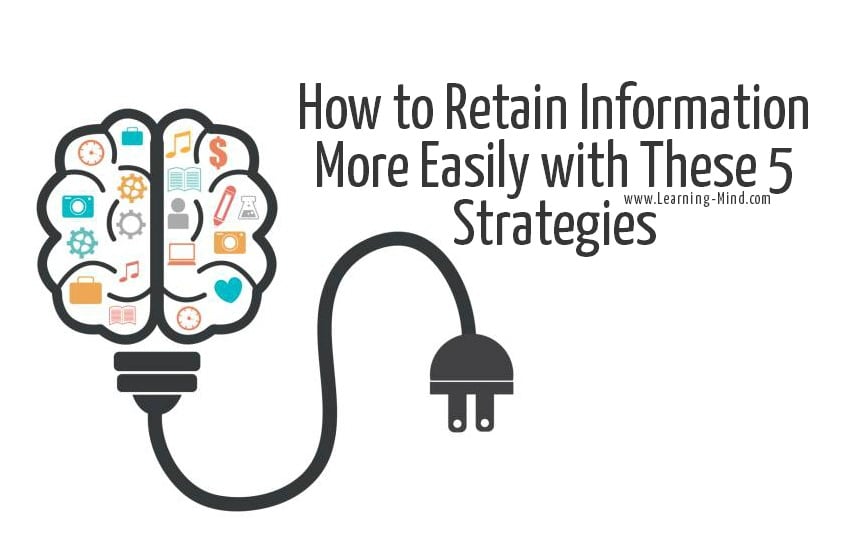
Do you ever feel like you’re expected to keep track of too much information? That there’s more going on in your life and the world around you than you can possibly remember? If so you’re not alone. The truth is most people are overwhelmed with the amount of information thrown at them on a daily basis. But if you think you’re incapable of improving your ability to retain this information, think again.
From an evolutionary perspective, humans are built to do two things: travel long distances on two feet and keep a massive mental catalog of facts and details about the world around us.
For hundreds of thousands of years, these basic skills helped early humans to successfully integrate themselves into a multitude of different environments around the planet ranging from the subtropical to the subarctic.
If you could somehow travel back in time and talk to our early ancestors, you would quickly realize the average “caveman” or “cavewoman” had an indelible memory regarding the natural world.
They knew everything they could about every planet and every animal in the area. They kept accurate track of the seasons and could quickly calculate how all these factors could and would intertwine to influence their lives. Most important of all, they caught on to the ways in which they could turn around and influence their environment.
What this means is that humans are bioengineered by Mother Nature to be memory machines. The only problem is that society has changed so much in the last few thousand years that our brains haven’t caught up yet. We’re expected to remember things without being exposed to them the way we would have been thousands of years ago.
With this in mind, it’s important for modern humans to utilize their natural information retention capabilities in order to remember the things modern life expects us to.
The extreme amount of information available to the average person – most of which comes via the internet – is overwhelming, to say the least. For most people, it’s not a question of whether they can find information but rather what information do they want to find?
More times than not, Google has you covered with a simple search. This means lots of modern learning experiences are one-off events where the individual is unlikely to encounter that information again.
Contrast this with the experience of our ancient ancestors, whose worlds were much smaller in scope. They found themselves repeatedly exposed to the same things throughout their lives. This forced a level of repetition which ultimately led to expert-level retention.
Modern humans can also rely on repeat exposure to information to improve their memory retention capabilities.
One major advantage modern humans have over our ancient ancestors is widespread literacy. The ability to read is incredibly vital for retaining information in the modern age. There is simply too much information to do it any other way.
According to transcription experts and others working directly with the transfer of spoken language to written words, the process of seeing speech on paper or on screen has a potent impact on memory. This is because a word is ultimately a symbol; humans have a better chance of remembering an idea if they can connect it to a visual construct.
Letters joined to make words provide that visual construct. Reading is arguably how modern humans “hack” our own complicated societies. It gives us a way to apply our visual cortex in pursuit of understanding abstract concepts.
Explaining your interpretation of information to others is a crucial part of the retention process. This explains why all those teachers made you write all those reports; it helped to cement the information in your memory and made the learning experience something which proved longlasting in its impact.
It’s a process which undoubtedly proved vital to our ancestors, who relied on each other to share important information with accuracy and integrity.
In order to better retain information in the future, consider writing a report. Even a 100-word paragraph can prove effective in helping to establish long-term memory of a given event or learning experience.
Only sharing your thoughts and feelings about a given topic is not enough to effectively remember all the important details. This is due to the human tendency to incorporate bias into our explanations and insights whether we mean to or not.
To help flesh out any misinterpretations caused by bias, people ought to review and discuss these topics with others.
Listening to what others have to say about a certain piece of information is like getting a whole extra brain’s worth of critical thinking prowess. Their insights can help you to remember things you may have originally overlooked because of any number of factors and vice versa.
Lastly, effective information retention requires some form of debate and discourse. This doesn’t always mean two parties have to disagree in order for both to successfully remember the facts correctly. Instead, there should be an airing of disagreements where they exist.
Attempting to extinguish each other’s opposing view can only lead to a reduction of your ability to retain information. On the other hand, when disagreeing sides are willing to debate, this will generate critical thinking about a given topic. This will further cement the information in their heads for future use.
This has the added effect of expanding their knowledge base, which ensures the information they retain is accurate all-around.
Human evolution has made us into beings with incredible memories. While modern life seems to challenge this trait, modern men and women can rely on their natural abilities to adapt. After all, it’s what we do best.
View Comments
caveman never existed how come there's no put together skeleton remains of a caveman anywhere in any science museum in the whole wild world like we have put together skeleton remains of dinosaurs I'll tell you why because caveman never existed
Simple, concise and clear explanation. Keep posting!